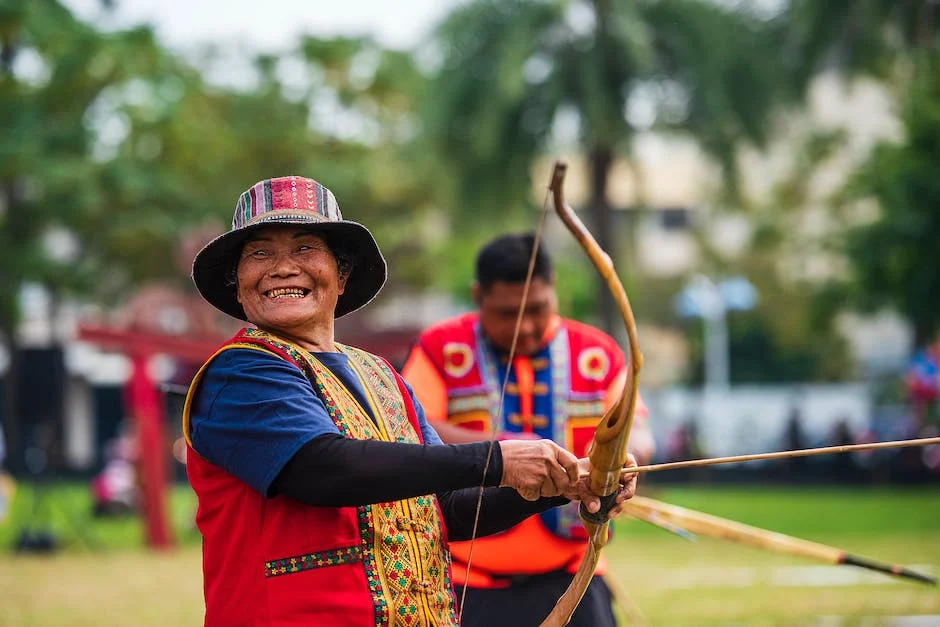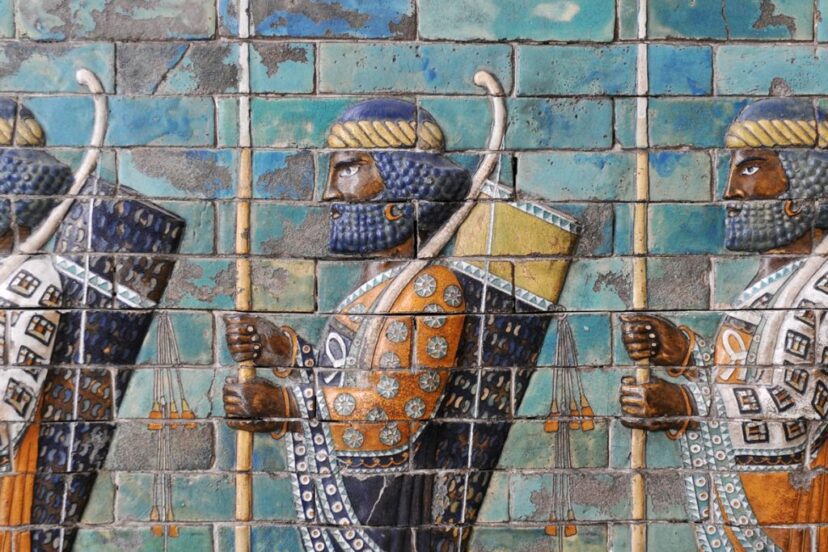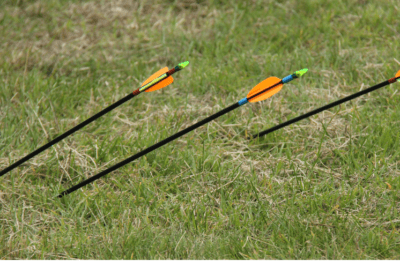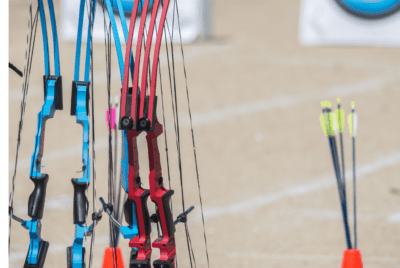The Role of Archery in Various Cultures Around the World
Introduction to archery
Archery is a sport that has been practiced for thousands of years and holds a significant role in various cultures around the world. From ancient civilizations such as the Egyptians and Greeks to indigenous tribes in North America and Asia, archery has been used for hunting, warfare, and even as a form of artistic expression. The skill and precision required to accurately shoot a bow and arrow have made archery a revered practice in many societies. Additionally, archery has also played a crucial role in folklore, myths, and legends, often symbolizing strength, bravery, and mastery. Whether it is the traditional longbow of England or the horseback archery of Mongolia, the diverse techniques and equipment used in different cultures showcase the rich history and cultural significance of archery.

Archery in ancient cultures
Archery has played a significant role in ancient cultures around the world, serving as both a practical skill and a symbol of power and prestige. From the ancient Egyptians and Persians to the Greeks and Romans, archery was a vital part of warfare, hunting, and even religious ceremonies. In ancient China and Japan, archery was not only a means of defense but also a form of meditation and discipline. The techniques and equipment used in these cultures varied, showcasing the diverse approaches to archery. Exploring the history of archery in these ancient cultures provides a fascinating insight into the human fascination with this timeless sport.
Archery in Asian cultures
Archery has played a significant role in Asian cultures for centuries, serving as both a practical skill and a revered art form. In countries like Japan, archery, known as “Kyudo,” embodies the principles of discipline, focus, and spiritual connection. In ancient China, archery was a vital military skill and a symbol of power and prestige. The Mongolian nomads perfected their archery techniques on horseback, using their bows and arrows for hunting and warfare. From the disciplined samurais of Japan to the skilled horse archers of Mongolia, Asian cultures have embraced archery as an integral part of their history, traditions, and identity.
Archery in European cultures
Archery has played a significant role in European cultures throughout history. From the legendary English longbowmen to the skilled archers of the Ottoman Empire, European societies have embraced archery as a vital skill for warfare, hunting, and sport. In medieval times, archery was a crucial component of military strategy, with armies relying on skilled archers to rain down arrows upon their enemies. However, archery was not limited to the battlefield. It was also a popular pastime among the nobility, who would organize tournaments and competitions to showcase their archery prowess. Today, archery continues to hold a special place in European cultures, with many countries hosting archery clubs and competitions, preserving the rich tradition and heritage of this ancient sport.
Archery in Native American cultures
Archery has played a significant role in Native American cultures for centuries, serving as more than just a means of hunting or warfare. It holds deep spiritual and cultural significance, representing a connection between humans and nature. Native American archers would often use bows made from natural materials like wood and animal sinew, showcasing their resourcefulness and craftsmanship. The skill and precision required in archery were highly valued, with competitions and games being held to showcase one’s prowess. Additionally, archery was often intertwined with storytelling and ceremonial practices, further highlighting its importance in Native American societies. Understanding the role of archery in these cultures allows us to appreciate the rich history and traditions that continue to shape our world today.
Archery in African cultures
Archery has played a significant role in various cultures around the world, including African cultures. In Africa, archery has been practiced for centuries and holds great cultural and historical significance. It has been used for hunting, warfare, and as a ceremonial and recreational activity. Different African tribes have developed their own unique styles and techniques of archery, using a variety of materials such as wood, animal sinew, and bone to craft their bows and arrows. Archery in African cultures not only served as a means of survival and protection but also as a symbol of strength, skill, and tradition. Today, archery continues to be celebrated and practiced in African communities, keeping their rich heritage alive.
Archery in modern times
Archery in modern times has evolved into a popular sport and recreational activity, but its roots can be traced back to ancient civilizations and their unique cultural practices. Today, archery is not only a competitive sport but also a form of meditation and self-discipline. Many countries, such as Japan, have preserved traditional archery techniques and rituals, showcasing the deep connection between archery and spirituality. Additionally, archery has become an integral part of certain ceremonies and celebrations in various cultures, symbolizing strength, precision, and honor. Despite the advancements in technology, the art of archery continues to captivate individuals of all ages, bridging the gap between ancient traditions and the modern world.
The significance of archery in different cultures
Archery holds great significance in various cultures around the world, serving as more than just a sport or hunting technique. In many cultures, archery has deep historical and cultural roots, symbolizing power, skill, and even spirituality. For example, in Japan, archery, or Kyudo, is considered a form of meditation and a path to self-discipline and enlightenment. In Native American cultures, archery played a vital role in hunting and warfare, with bows and arrows being crafted with intricate designs and imbued with spiritual meaning. Understanding the significance of archery in different cultures not only provides insight into their traditions and values but also highlights the universal appeal and enduring legacy of this ancient practice.
Archery as a sport and recreational activity
Archery has a rich history and plays a significant role in various cultures around the world. Beyond its use in hunting and warfare, archery has evolved into a popular sport and recreational activity. Many countries have their own unique styles and techniques, showcasing the diverse ways in which archery is practiced. From the traditional Japanese Kyudo to the precision and focus of Korean archery, each culture brings its own flair and traditions to the sport. Archery not only promotes physical fitness and hand-eye coordination but also fosters mental discipline and concentration. Whether you are drawn to the competitive aspect or simply enjoy the meditative nature of the sport, archery offers a rewarding experience for individuals of all ages and backgrounds.
Conclusion: The universal appeal of archery
The universal appeal of archery is a testament to its rich history and cultural significance across the globe. From ancient civilizations to modern sports, archery has played a vital role in various cultures, serving as a means of survival, a symbol of power, and a source of entertainment. In many indigenous communities, archery has deep spiritual and ceremonial connections, representing a connection to nature and a way to honor ancestors. Additionally, archery has evolved into a competitive sport that captivates athletes and enthusiasts alike, showcasing precision, focus, and discipline. Whether it is the traditional Japanese kyudo or the intense Olympic archery competitions, the art of shooting arrows continues to captivate people from all walks of life, transcending language and borders. It is this universal appeal that makes archery a truly timeless and cherished practice.
Frequently Asked Questions (FAQs)
1. Why is archery considered a universal practice?
Archery’s universal appeal stems from its rich history, diverse cultural significance, and adaptability as both a survival skill and a modern competitive sport.
2. How has archery evolved over time?
From ancient civilizations to modern sports, archery has transformed from a means of survival to a symbol of power and, now, a captivating competitive sport with various disciplines.
3. What cultural roles has archery played?
Archery holds deep spiritual and ceremonial connections in many indigenous cultures, serving as a way to connect with nature, honor ancestors, and preserve cultural heritage.
4. What skills does archery showcase in competitive sports?
Archery as a competitive sport highlights precision, focus, and discipline. Athletes engage in intense competitions, such as Olympic archery, showcasing the art’s enduring allure.
5. How does archery transcend cultural and linguistic boundaries?
The timeless practice of archery captivates people globally, transcending language and borders. Whether practicing traditional Japanese kyudo or participating in modern competitions, archery remains a cherished and universally understood pursuit.




